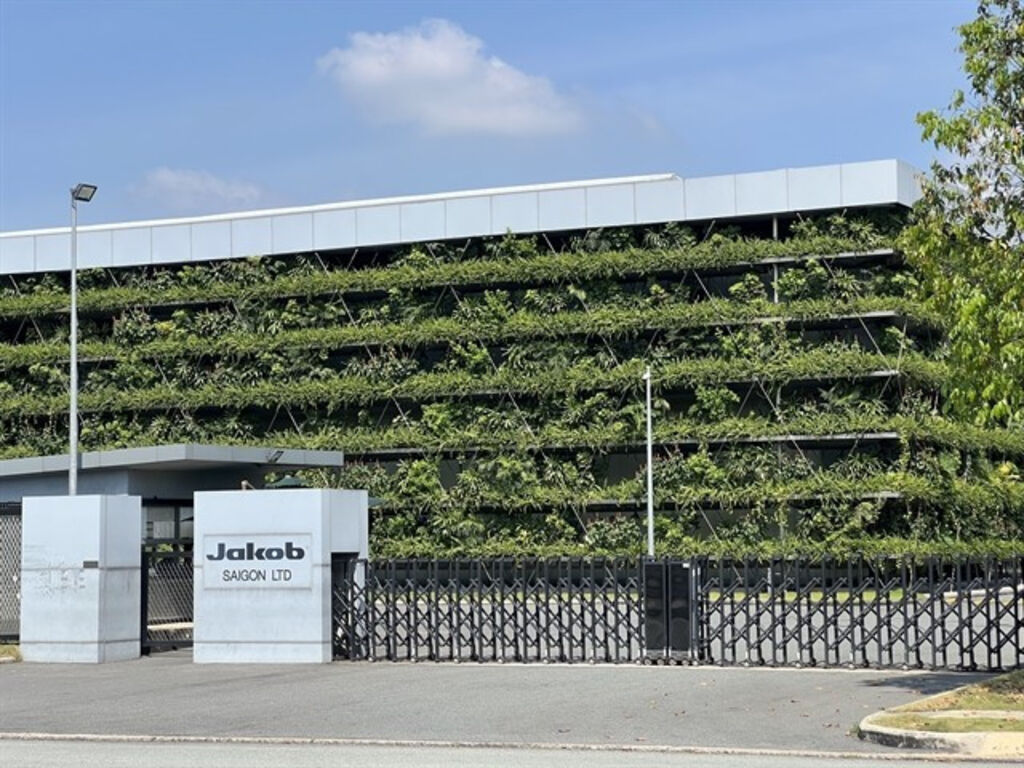 |
| The Jakob Sai Gon Co., Ltd. factory in the Vietnam–Singapore Industrial Park is a standout example of green transition in Ho Chi Minh City__Photo: VNA |
Accelerating the national policy framework
The Government Office has issued a notice conveying Deputy Prime Minister Tran Hong Ha’s conclusions on tackling air and river pollution in Ha Noi and Ho Chi Minh City, while implementing the National Action Plan on Air Pollution Remediation and Air Quality Management for 2025-2030, with a vision to 2045.
The Government has tasked the Ministry of Finance to take the lead, in coordination with relevant ministries and sectors, with formulating and submitting tax, fee and financial support policies to competent authorities for approval in order to promote the green economy, circular economy, and assist citizens in switching to green vehicles. This task must be completed within the fourth quarter of this year.
At the same time, the Ministries of Industry and Trade; Construction; and Science and Technology must issue national technical standards for electric vehicle charging stations at public areas, parking lots and rest stops before October 15. Urban planning must also integrate green transport infrastructure, including charging and battery-swapping stations, to be finalized by the end of this year.
The national air quality monitoring system will be developed in a modern, synchronized manner, applying artificial intelligence to provide continuous data for the public, researchers and regulators, and is expected to be operational by the third quarter of 2026.
Ha Noi and Ho Chi Minh City, identified as the two urban centers under the heaviest pollution pressure, will serve as priority pilots for breakthrough solutions before scaling nationwide under the principle: “Only when localities succeed can the entire country succeed.” From this orientation, the Deputy Prime Minister requested the Ministry of Construction, in coordination with the two cities, to propose to the Government a roadmap for modern, integrated public transport systems (including metro lines, elevated trains, and clean-energy buses). They are also tasked with suggesting innovative policies to attract private investment and support citizens’ use of public and green transport. Reports must be submitted to the Prime Minister in October.
Hanoi moves to ease access to capital for businesses
In practice, Hanoi is taking the lead in putting into place mechanisms to support businesses in the green transition. The city has introduced a plan to develop public transport using electric and clean-energy buses, targeting full implementation by 2030.
To realize this goal, the municipal People’s Committee has submitted to the People’s Council a proposal to amend Resolution 07/2019/NQ-HDND. Key revisions include: raising interest subsidies from 50 percent to 70 percent; expanding coverage to 100 percent of loan contract value; and extending the subsidy period to a maximum of 10 years (instead of five previously).
Loan conditions would also be eased. Projects need not be approved by the city, but may be self-approved by enterprises, provided they have valid loan contracts with banks or the city’s Development Investment Fund.
The policy will apply to businesses that invest in mass transit infrastructure or provide public passenger transport services by bus, including procurement of electric and clean-energy buses and related infrastructure (transformer stations, charging stations, and gas refueling stations).
The draft resolution will be submitted at a special session of the People’s Council in late September 2025. According to calculations, if all bus transport enterprises in Hanoi borrow capital to renew their fleets under the new mechanism, total interest subsidies for 2025-2030 are projected at VND 1.761 trillion, averaging nearly VND 300 billion per year.
According to Directive 20/CT-TTg, from July 1, 2026, gasoline-powered motorcycles will no longer be allowed to circulate within Ring Road No. 1 in Ha Noi. From January 1, 2028, restrictions will expand to Ring Road No. 2, covering both motorcycles and private cars running on fossil fuels. By 2030, the ban will further extend to Ring Road No. 3.- (VLLF)









